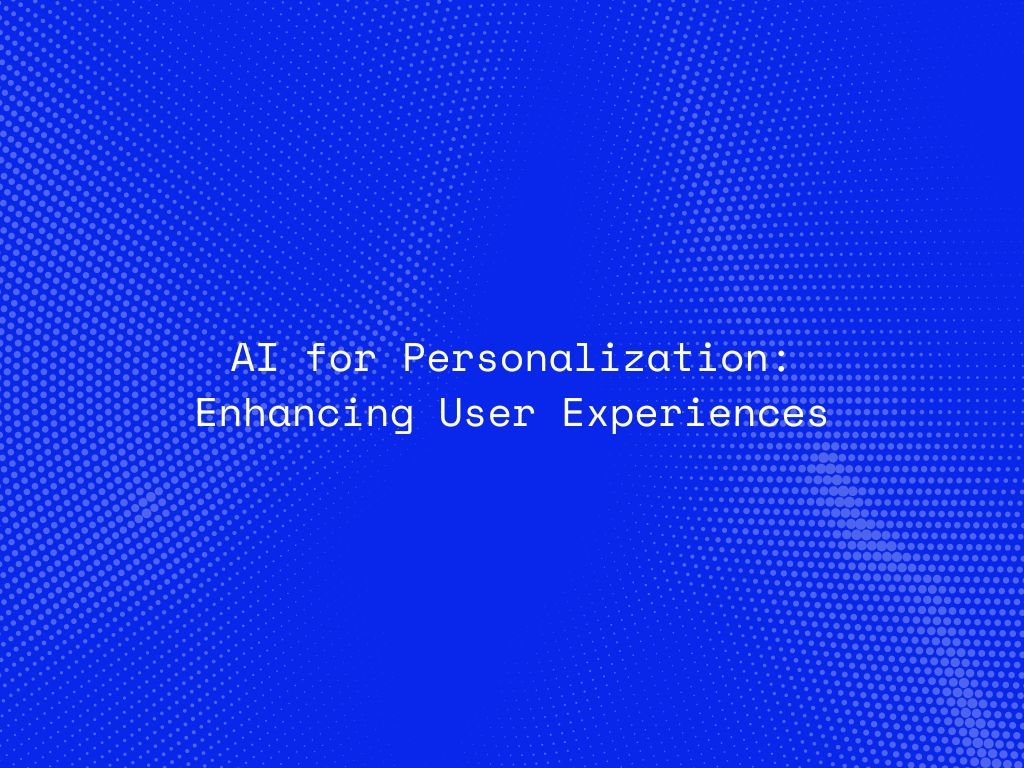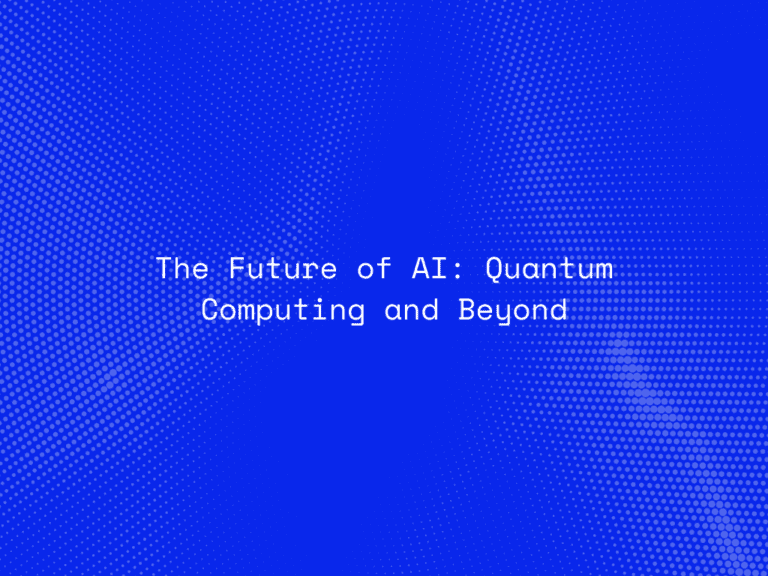Artificial Intelligence (AI) has become a cornerstone of modern technology, driving innovations across various industries. One of the most impactful applications of AI is personalization, which tailors experiences and content to individual users. From customized recommendations to personalized customer service, AI-driven personalization is enhancing user experiences like never before.
The Importance of Personalization
Meeting User Expectations
In today’s digital age, users expect personalized experiences. Whether it’s tailored product recommendations or personalized content, delivering relevant experiences is key to user satisfaction and loyalty.
Enhancing Engagement
Personalized experiences capture users’ attention more effectively, leading to increased engagement. By showing users what they are most interested in, businesses can foster deeper connections and drive more meaningful interactions.
Boosting Conversion Rates
Personalization can significantly improve conversion rates. When users receive personalized recommendations and content, they are more likely to make purchases or take desired actions, leading to higher conversion rates and revenue growth.
How AI Powers Personalization
Data Collection and Analysis
AI systems collect and analyze vast amounts of user data, including browsing behavior, purchase history, and preferences. Machine learning algorithms then process this data to identify patterns and trends.
Predictive Analytics
Predictive analytics leverages historical data to make informed predictions about future user behavior. By understanding what users are likely to do next, AI can provide timely and relevant recommendations.
Natural Language Processing (NLP)
NLP allows AI systems to understand and interpret human language. This technology powers personalized interactions in chatbots and virtual assistants, enabling them to respond to user queries in a more natural and relevant manner.
Connect With Us
Applications of AI-Driven Personalization
E-commerce
AI-driven personalization is revolutionizing e-commerce by providing tailored product recommendations based on user preferences and behavior. This not only enhances the shopping experience but also increases sales.
Examples:
- Product Recommendations: Personalized product suggestions based on browsing and purchase history.
- Dynamic Pricing: Offering personalized discounts and pricing based on user behavior and preferences.
Content Streaming
Streaming platforms use AI to recommend movies, TV shows, music, and more, based on individual viewing and listening habits. This keeps users engaged and helps them discover new content they’ll love.
Examples:
- Movie and TV Show Recommendations: Tailored suggestions on streaming platforms like Netflix and Hulu.
- Music Playlists: Personalized playlists on music streaming services like Spotify and Apple Music.
Online Advertising
AI-powered personalization in online advertising ensures that users see ads relevant to their interests. This improves the effectiveness of ad campaigns and enhances the user experience by reducing irrelevant ads.
Examples:
- Targeted Ads: Personalized advertisements based on user demographics and behavior.
- Retargeting Campaigns: Ads targeting users who have previously interacted with a brand or visited a website.
Customer Service
AI-driven chatbots and virtual assistants provide personalized customer service by understanding and responding to individual user queries. This improves response times and ensures users receive accurate and relevant information.
Examples:
- Chatbots: AI-powered chatbots offering personalized assistance on websites and apps.
- Virtual Assistants: Personal assistants like Siri, Alexa, and Google Assistant providing customized responses and recommendations.
Education
In education, AI personalization tailors learning experiences to individual students, enhancing their learning outcomes. Personalized learning plans and adaptive assessments help students learn at their own pace and in their preferred style.
Examples:
- Personalized Learning Paths: Customized study plans based on student performance and learning preferences.
- Adaptive Assessments: Tests that adjust their difficulty based on student responses.
Challenges and Ethical Considerations
Privacy Concerns
Collecting and analyzing user data raises privacy concerns. Ensuring data security and obtaining user consent are crucial for maintaining trust and complying with regulations.
Bias and Fairness
AI systems can inadvertently perpetuate biases present in the training data. Ensuring fairness and transparency in AI algorithms is essential to avoid biased or discriminatory outcomes.
Over-Personalization
There is a risk of over-personalization, where users feel their privacy is being invaded or their experiences are too narrowly tailored. Balancing personalization with user autonomy is key to maintaining a positive user experience.
The Future of AI Personalization
Advancements in AI Technology
As AI technology continues to advance, personalization will become even more sophisticated. Future AI systems will offer deeper insights and more accurate predictions, enhancing personalization across all sectors.
Integration with Other Technologies
AI personalization will increasingly integrate with other emerging technologies, such as augmented reality (AR) and the Internet of Things (IoT), creating even more immersive and tailored experiences.
Democratization of Personalization
With the development of user-friendly AI tools, personalization will become accessible to a wider range of businesses, enabling even small enterprises to deliver personalized experiences to their customers.
Conclusion
AI-driven personalization is transforming user experiences across various domains, from e-commerce and content streaming to customer service and education. By leveraging AI to deliver tailored experiences, businesses can enhance user satisfaction, engagement, and loyalty. As technology continues to evolve, the potential for AI personalization will only grow, promising a future of even more relevant and engaging user interactions.




